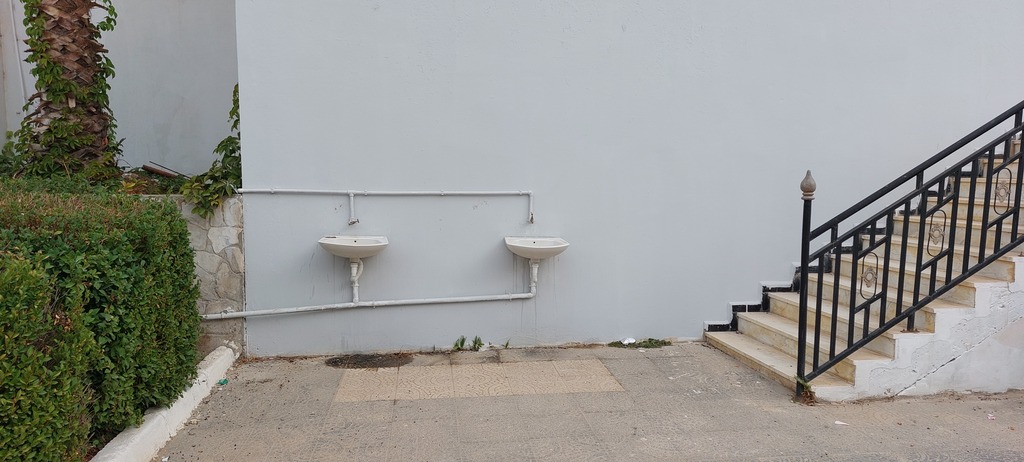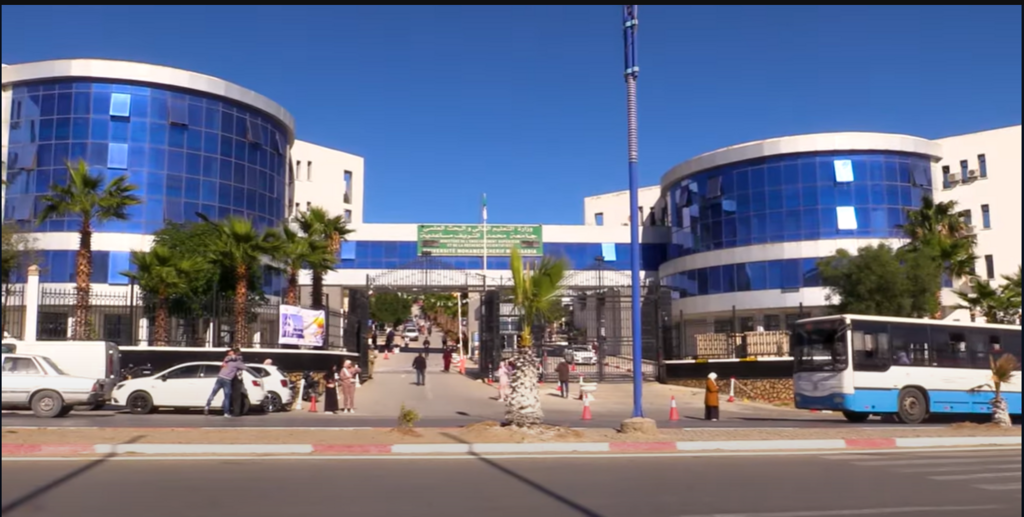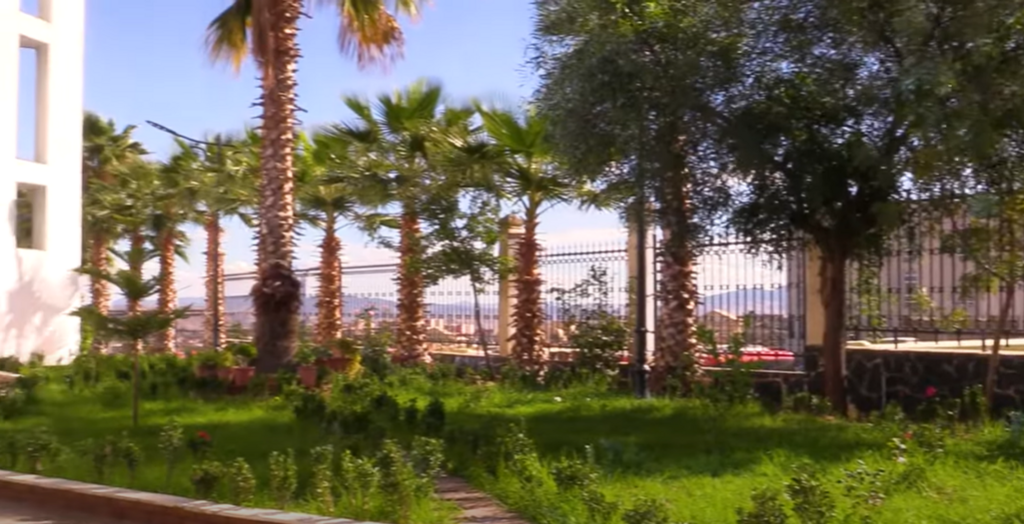6.2.1- In 2023, the University of Souk Ahras worked to constantly monitor water consumption, taking care of the economy and rationalizing consumption. This consists of annual monitoring of consumption in order to compare it and take the necessary measures to prevent waste. An amount of 42219 m3 of water was consumed in 2023 by 12,538 people at the university.
Water consumption in cubic metres
| Year 2020 | Year 2021 | Year 2022 | Year 2023 |
| 40.404 m3 | 44.290 m3 | 39.943 m3 | 42219 m3 |
6.2.2.1Volume of water used in the university: Inbound (treated/extracted water)
42219 m3
6.3.2 – Before 2023, the University of Souk Ahras worked to prevent water contamination on campus by protecting the drinking water pipelines and informing contractors of water pipeline maps before any excavation operations to avoid drinking water contamination. In the event of accidents, the university isolates the drinking water channels from any contamination, with partial isolation based on the location of the incident.
6.3.3 – In 2023, Souk Ahras University provided drinking water for employees and visitors by placing water taps for drinking and washing in several places of the university, free of charge.

6.3.4 –The University of Souk Ahras implements building pipe insulation to minimize water loss during water transport. Additionally, shut-off valves are installed in each building to prevent water wastage in case of specific incidents, allowing for either complete or partial isolation. To meet international standards for water flow without waste, the university adheres to construction regulations that ensure a continuous water supply while effectively minimizing water wastage.
6.3.5 – The University of Souk Ahras places a strong emphasis on developing green spaces by cultivating drought-tolerant trees, such as Eucalyptus globulus, Juniperus oxycedrus, Cupressus sempervirens, and Allepo Pine, across its campus. These trees are chosen for their ability to retain their greenery year-round while requiring minimal water, contributing to sustainable landscaping and efficient water management.


6.4.1 – The University of Souk Ahras is strongly committed to conserving water resources and fostering environmental sustainability by implementing strategies to optimize water reuse across the campus. This policy aims to enhance water consumption efficiency, effectively manage water usage, promote water reuse for various applications, reduce water pollution, and improve overall water quality. Additionally, it seeks to raise awareness about the importance of water sustainability among both the university community and the broader public.
6.5.1 – The University of Souk Ahras actively educates local communities on water management through specialized academic programs. The Bachelor’s degree in Hydraulics provides comprehensive training in water systems and resource management, equipping students with skills to address regional water challenges. The Master’s degree in Urban Hydraulics offers advanced knowledge of urban water systems, focusing on sustainable management of distribution, drainage, and infrastructure, preparing graduates to handle complex issues in urban water environments.
6.5.3 – In 2023, the University of Souk Ahras initiated an agreement with the Directorate of Water of Souk Ahras province. Among the provisions of this agreement is the organization of training and educational workshops to promote water conservation within the province.
NB – This convention is valid for 5 years.
6.5.4 – The University of Souk Ahras utilizes sustainable methods to extract groundwater by drilling wells within its campus surroundings to ensure a continuous water supply.
6.5.5 – The university collaborates with local and regional public institutions to achieve water security.
NB – This convention is valid for 5 years.
6.5.6 – The University of Souk Ahras is committed to encouraging responsible water usage across campus through a range of well-structured initiatives aimed at raising awareness and educating the community. These efforts include hosting awareness days, workshops, and specialized training sessions to inform students, faculty, and visitors about the importance of water conservation and the impact of their daily water usage.
Awareness days feature interactive activities, informative booths, and expert-led talks on water resource management, providing practical advice on reducing water waste and highlighting the environmental consequences of inefficient water use. Staff training focuses on implementing water-saving practices in campus operations, such as optimizing water use in labs, kitchens, and other facilities.
Through these activities, the university promotes a culture of sustainability, ensuring that everyone on campus—students, staff, and faculty—receives the knowledge and tools necessary for effective water management. This collective effort fosters a shared commitment to conserving water and reducing waste, contributing to the university’s broader environmental sustainability goals.
See Article 6.
6.5.7 – A laboratory for Social and Economic Modeling and Analysis in Water Science was established at the University of Souk Ahras, with one of its main objectives being to promote the conscious use of water in the broader community.








 Views Last 7 days : 156907
Views Last 7 days : 156907 Views This Month : 96236
Views This Month : 96236